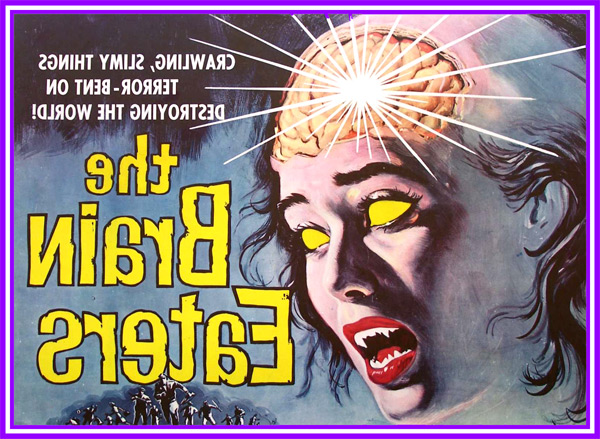This is scary stuff . . . I mean really scary . . . Brave New World scary . . . the New York Times has a feature on the current trend in psychiatrists abandoning all variations of talk therapy completely and moving into very brief sessions with patients with absolutely no human connection, you see the psychiatrist for a few minutes and he prescribes drugs and you’re out of there. No therapy, no intimacy, no real meaningful connection of human contact at all . . . and even the drugs are often iffy in their appropriateness to a particular issue. It’s no longer about dealing with causes for permanent change and help but only about drug management of symptoms.
The piece is titled “Talk Doesn’t Pay, So Psychiatry Turns to Drugs Instead” . . . but don’t let the title mislead you. The trend has absolutely nothing to do with whether or not talk therapy or other forms of cognitive therapy work but that insurance companies have moved toward supporting drug models for intervention only. That means folks who engage in therapies that do not use drugs either don’t get paid or they have a lot of delay in payments which are often short-changed.
Don’t get me wrong, I strongly believe that psychologists and psychiatrists should be moving toward more effective modalities and I strongly believe that rapid therapy approaches should be the trend rather than the old fashioned approach of some psychologists or psychiatrists seeing patients for years before any significant headway is made, this is also why I strongly advocate hypnosis approaches as metastudies have consistently shown hypnosis to be briefer and more effective over all.
However, this trend is fueled more by a desire to “seem” more scientific (little blue pills certainly seem so to many) and a partnership by insurance companies with drug companies to move move product (see the epidemic of kids being over-medicated for behavior issues that have nothing to do with neurology other than they are merely experiencing feelings within a normal range – we’ve stopped managing kids through good education techniques and started simply drugging them into compliance and drug companies are making literally billions of dollars in the process).
I sometimes lecture in my courses at the university on the change in how physicians saw patients in the Nineteenth Century as their status rose and they began to stop making house calls and instead urban hospitals and clinics were growing in such a way that patients came to them. Patients were no longer seen as partners in their own care than as objects to be manipulated (one of many reasons chemical anesthesia won out over hypnotic approaches to hospital pain relief). Michel Foucault’s work on the hospital and the sanitarium is well worth the looksee. This current trend away from human connections in therapeutic professions seems an extension of that very negative trend.
In the article in the NYT, the quote from Dr. Donald Levin speaks volumes when he says, “I had to train myself not to get too interested in their problems, and not to get sidetracked trying to be a semi-therapist.” Levin, like many, has all but abandoned any form of talk therapy or human connection with his patents. His practice, and the practice of many others, has been transformed into an assembly line of quick meetings to prescribe the drug of the day.
Alone with his psychiatrist, the patient confided that his newborn had serious health problems, his distraught wife was screaming at him and he had started drinking again. With his life and second marriage falling apart, the man said he needed help. But the psychiatrist, Dr. Donald Levin, stopped him and said: “Hold it. I’m not your therapist. I could adjust your medications, but I don’t think that’s appropriate.”
Read the entire article at http://www.nytimes.com/2011/03/06/health/policy/06doctors.html for much much more.
Seriously, this is really scary stuff and it’s going to have tremendous long term repercussions in how humans of all professions relate to one another as more and more helping professions abandon cognitive and behavioral and human intimacy connections to solving problems and switch to chemical management of symptoms alone. This will also have political and cultural ramifications as this trend dove tails into the already prevalent trend of medicating those with behavioral issues as well as young people . . . Big Brother may be a fictional construct but we may just be sowing the seeds of his birth . . . or perhaps even worse (I suspect worse, much worse in the long run).
All the best,
Brian
http://www.briandavidphillips.com








3 comments for “The Brave New World is Here and it Sucks . . . Psychiatry Abandoning Human Connection and Moving to Instant Drug Prescriptions”